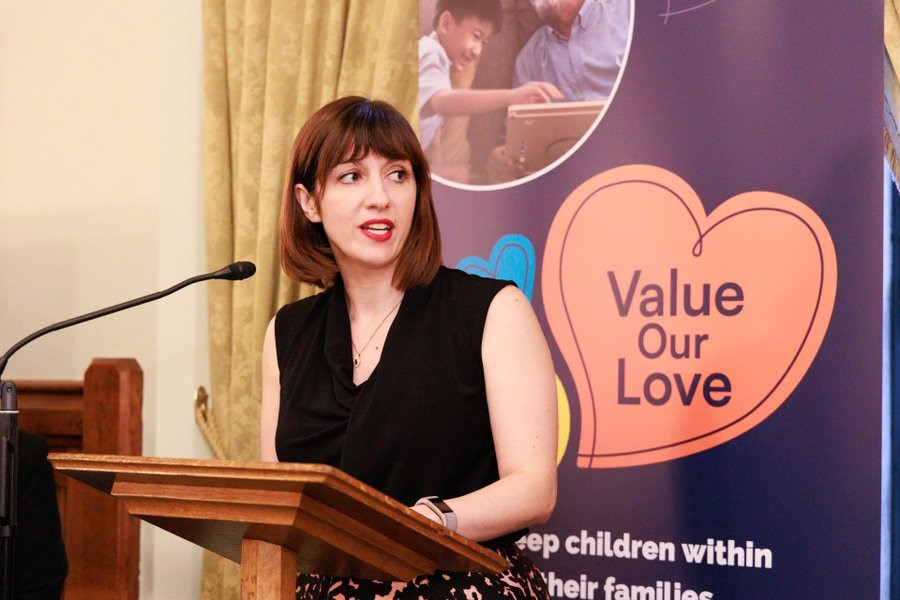
Learn how Kinship shapes policy and advocates for change. Through collaboration with families and policymakers, we work to ensure kinship carers’ voices are heard and supported across England and Wales.
Family networks and kinship care have been placed at the heart of the national policy direction for children's social care and the Department for Education's priorities.
Good progress
Click on the link below to take you to the section you'd like to read:
Kinship care remains a key priority for the Department for Education within its children’s social care reform programme. The government’s policy paper – Keeping children safe, helping families thrive – published in November 2024, reinforces that “where children cannot remain at home and it is in their best interests, we should support children to live with kinship carers or in fostering families, rather than in residential care”.
For the first time this year, all three major UK political parties included a mention of kinship care within their General Election manifestos. The Labour Party said that “every child should have a loving, secure home. Labour will work with local government to support children in care, including through kinship, foster care, and adoption, as well as strengthening regulation of the children’s social care sector”. This follows a commitment made by then Shadow Secretary of State for Education, Bridget Phillipson MP, at the #ValueOurLove campaign launch in October 2022 that “Labour will not forget kinship carers. We will not forget the children you care for. We will not forget the difference you make. We will always remember the love you give”.
The Stable Homes, Built on Love implementation strategy in February 2023 prioritised, for the first time, kinship care as a central pillar of children’s social care and of the Government’s work to improve support for families. The National Kinship Care Strategy – Championing Kinship Care – published in December 2023, continued to reaffirm kinship care as a core part of the national vision for children’s social care as never before.
The Children’s Social Care National Framework, published as statutory guidance alongside the National Kinship Care Strategy, has as one of its key principles that the best place for most children to grow up is in their families or with kinship carers. Outcome 2 within the Framework is “children and young people are supported by their family network”.
The previous Government’s continued recognition of kinship care as a distinct and valuable element within children’s social care, and the celebration of its positive impact for children and society, marked a step change from previous rhetoric and action which focused almost exclusively on fostering and adoption. After decades of being overlooked and marginalised, the value of this continued acknowledgement by Government of kinship families’ challenges and strengths is welcome.
In its response to the Stable Homes, Built on Love consultation, the Government acknowledged that the “level of interest in support for kinship carers” had “reaffirmed how important it is to act now”. We were delighted to lead the way in supporting kinship carers to share their views with the Government on its plans; over 400 kinship carers responded to the consultation, representing nearly half of all respondents.
We welcome that kinship care has been firmly established as a key part of the children’s social care system and placed at the heart of a new National Framework to set national direction and local authority practice, and that for the first time ever we have a National Kinship Care Strategy. Other revised statutory guidance, including Working Together to Safeguard Children, now makes explicit reference to promoting the upbringing of children in kinship care arrangements.
It’s also right that the wider principles underpinning children’s social care include recognition that children are best raised in family environments where possible – one of the key principles within the Children Act 1989 – and that practice and services are poverty-aware and anti-discriminatory, and are drawn from the United Nations Convention on the Rights of the Child (UNCRC).
Following the publication of the National Kinship Care Strategy, the new Government should maintain the momentum and ensure that this national recognition of kinship care filters through more widely across all governmental policymaking and public services, as well as to local authorities and practice. See the other policy tracker sections including ‘Building a new kinship care system’, ‘Defining kinship care’ and ‘Improving local authority practice’ explore current progress here and what else we think should happen next.